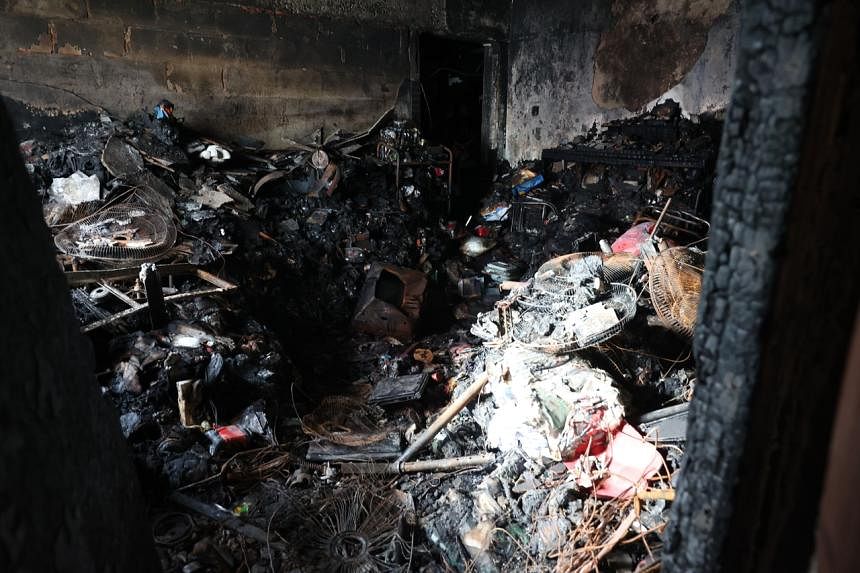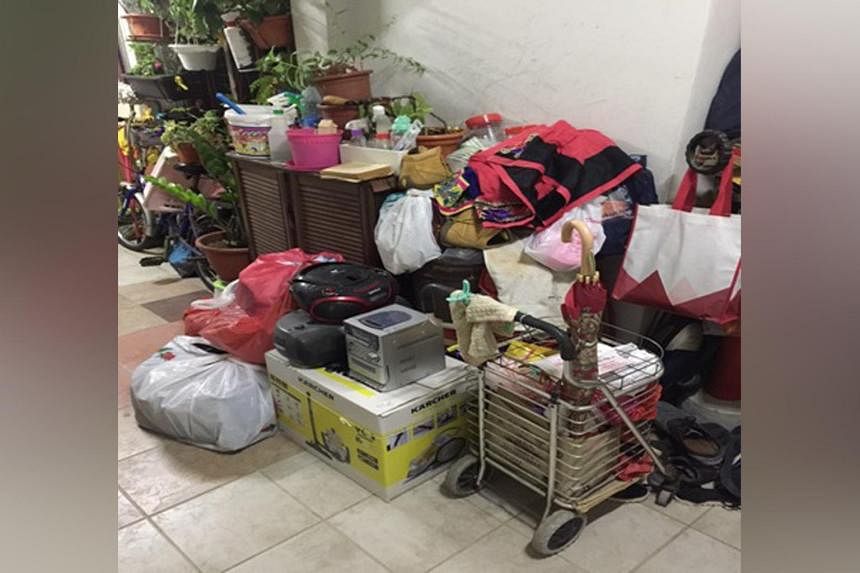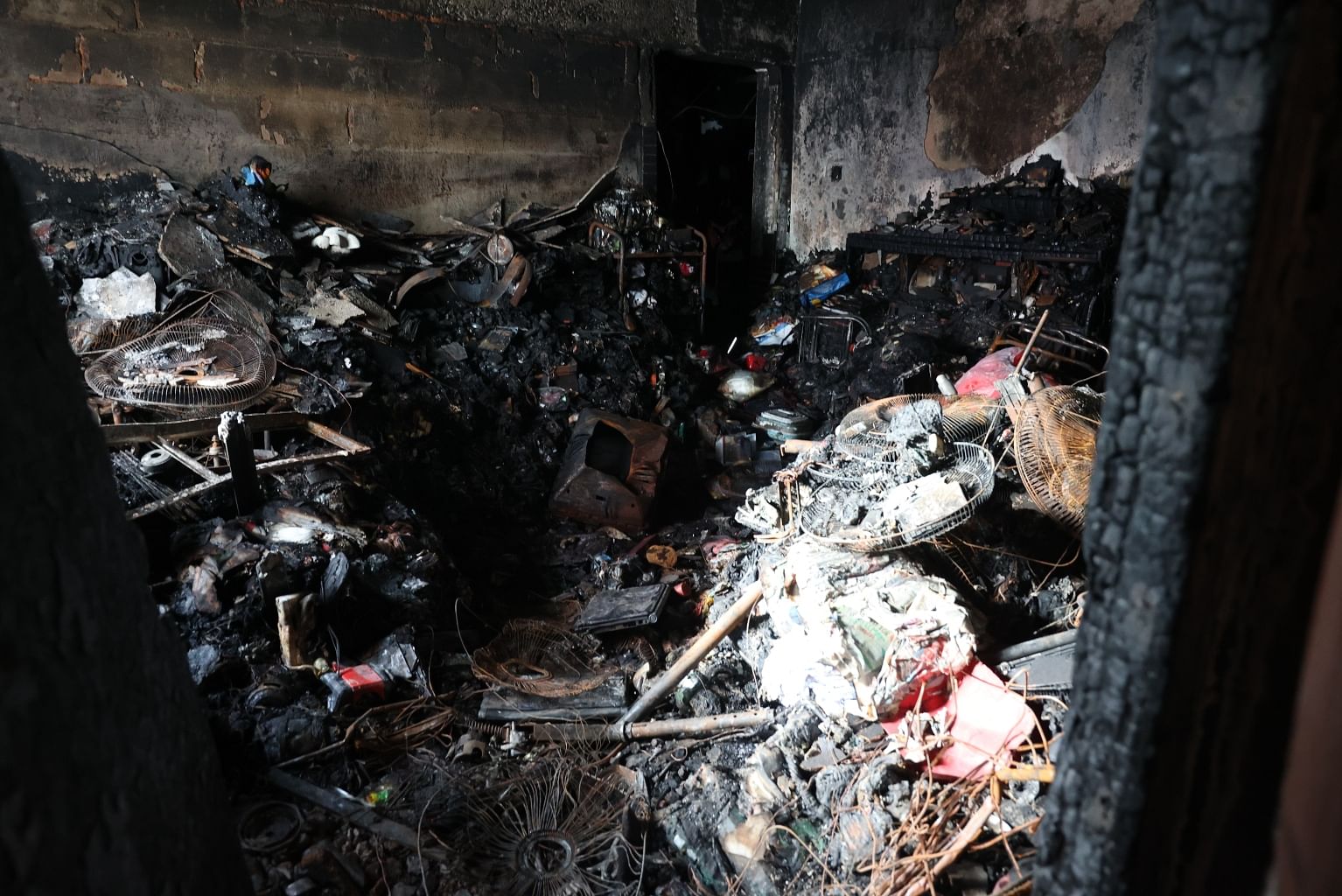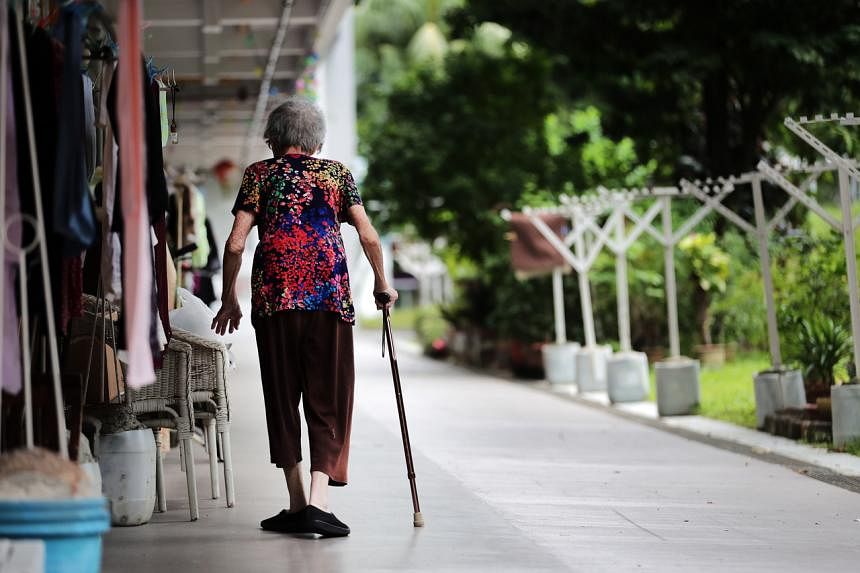Some seniors bear brunt of inflation as children give them less money
As the rate of core inflation goes up, seniors in Singapore aged 65 and above are bearing the brunt of inflationary pressures. PHOTO: ST FILE
Shermaine Ang
Aug 29, 2022
SINGAPORE - Divorcee Chua Lye Tszio, 78, who lives alone in a rental flat in Tampines and does not have a retirement fund, gets by on $600 a month from her four daughters.
But the amount is getting increasingly hard to stretch, with
core inflation rate hitting a 13-year high of 4.8 per cent, and overall inflation reaching 7 per cent in July.
As the rate of core inflation goes up, seniors in Singapore aged 65 and above are bearing the brunt of inflationary pressures.
They have been receiving a smaller amount of cash allowance from their loved ones, according to a study by the Central Provident Fund (CPF) Board. At the same time, higher consumer prices have raised their expenses to 96 per cent of their income, higher than the average of 64 per cent, a DBS study showed.
The latest Retirement and Health Study by the CPF Board showed that the share of seniors who received cash allowance from their children dropped from 69 per cent in the two-year period from 2018 to 2019 to 64 per cent in the 2020 to 2021 period. Those who have a monthly allowance got 4 per cent less in 2020, from $500 to $480.
The board said this could be a reflection of the economic impact of the Covid-19 pandemic, when their children cut back on their cash allowances.
In the survey, 12,000 to 15,000 individuals were interviewed every two years since 2014 on their retirement and health needs.
Meanwhile, the DBS study found that those aged 58 to 76 have an expense-to-income ratio of 96 per cent, compared with 64 per cent for the average DBS customer.
"This suggests lower bandwidth among (baby) boomers, including seniors, to tackle inflationary pressures going forward," senior economist Irvin Seah from DBS Group Research told The Straits Times.
"Though inflation will remain elevated this year, there are signs that it is near its peak, judging from the moderation in global prices for food, energy and commodities in the past three months," he added.
Mr Seah said that from May 2021 to May this year, baby boomers' spending on shopping increased the most, with a 47 per cent spike, followed by transport spending, which rose 44 per cent, and food spending, which rose 26 per cent.
The three largest components of spending are typically food, transport, and housing and utilities, he said.
He suggested that baby boomers can consider cutting discretionary spending, such as shopping.
But some seniors like Madam Chua do not have this option - she is already spending only on necessities.
While she thinks $600 a month is hard to live on, it is enough for her as she lives simply, she said.
"(The amount) is just nice... As long as there's enough to eat, I don't ask for more."
She usually cooks simple meals of rice with egg, sardines or luncheon meat, and spends her days in the Lions Befrienders Seniors Activity Centre in her housing block.
She visits the doctor once or twice a month for her asthma and knee pain, and her daughters foot the bill.
She told ST she does not want to ask any of her daughters for more allowance as they have children to support and are trying to make ends meet themselves.
While she is concerned about inflation and the rising cost of living, she does not see the point of fretting over them. "It's no use to worry," she said.
Economics lecturer Eric Yeo, 34, gives his parents $600 a month.
As he gives them a fixed percentage of his income, the amount has increased over the years, but Mr Yeo is not raising the amount this year as he has to support his children, aged five and one.
"My parents are not too worried (about inflation); they're not big spenders," he said, adding that he has two siblings helping to support his parents.
He is cutting back on his expenses as well, taking his children to free playgrounds rather than paid ones and having less artisanal ice cream, for instance.
"But not to the point of feeling deprived," he added. "I'm not that concerned about inflation as I think it is short term."
Mr Joe Tan, who heads integrated case management at Care Corner Seniors Services, said some of his clients' children saw their finances impacted by the pandemic, on top of having to cope with inflation and the increased cost of their parents' healthcare needs. Middle-income workers may not qualify for financial support, which may add to their family's financial burdens, he added.
He said children may cut back on their parents' cash allowance when their incomes do not increase in tandem with price hikes. Trouble arises when seniors compensate for this by eating less or lower-quality food or skipping medical appointments, he said.
Some seniors delay asking their children for financial help for fear of burdening them, or straining their relationship further, he added.
Lions Befrienders chairman Anthony Tay said the Government has made employment available for seniors who want to return to the workforce, where job redesign, job matching and skills upgrading are offered at a very low cost.
He said micro jobs with flexible hours may also benefit seniors.
The Ministry of Social and Family Development (MSF) said there are sources of retirement support for elderly Singaporeans, such as the Pioneer and Merdeka Generation packages and the Silver Support Scheme. The payout amounts have been increased for the scheme since January last year to strengthen support for seniors with lesser means.
Those who need help can call the ComCare hotline on 1800-222-0000 or approach the nearest Social Service Office, MSF added.






